The Vision of the Tree of Life
1 Nephi 8–11; 12:16–18; 15
LDS manual: here
Purpose
To encourage a more helpful view of the world than Mormon theology allows
Reading
For this lesson, we’re getting into Nephi’s analogy of the Tree of Life — a big white tree that makes you happy when you eat its fruit. (It’s not drugs, apparently.)
But the real message of the tree is that there’s only one place to be, and only one way to get there. This fits in well with the current message of the church, which pretty much amounts to “stay in the church”. And when your organisation just says “stay in the organisation”, that means the organisation is entirely superfluous.

Main ideas for this lesson
Origins of the Tree of Life story
Members of the church make a big deal about how Joseph Smith couldn’t have cranked out the Book of Mormon himself in such a short time. Well, he didn’t have a short time. You know what they say: You have your whole life to write your first book.
And so it is here. It seems that Smith borrowed the Tree of Life analogy from a story his dad used to tell. Here’s the story as his mother told it in her book History of Joseph Smith by His Mother.
In 1811, we moved from Royalton, Vermont, to the town of Lebanon, New Hampshire. Soon after arriving here, my husband received another very singular vision, which I will relate:
“I thought,” said he, “I was traveling in an open, desolate field, which appeared to be very barren. As I was thus traveling, the thought suddenly came into my mind that I had better stop and reflect upon what I was doing, before I went any further. So I asked myself, ‘What motive can I have in traveling here, and what place can this be?’ My guide, who was by my side, as before, said, ‘This is the desolate world; but travel on.’ The road was so broad and barren that I wondered why I should travel in it; for, said I to myself, ‘Broad is the road, and wide is the gate that leads to death, and many there be that walk therein; but narrow is the way, and straight is the gate that leads to everlasting’ life, and few there be that go in thereat.’
Traveling a short distance farther, I came to a narrow path. This path I entered, and, when I had traveled a little way in it, I beheld a beautiful stream of water, which ran from the east to the west. Of this stream I could see neither the source nor yet the termination; but as far as my eyes could extend I could see a rope running along the bank of it, about as high as a man could reach, and beyond me was a low, but very pleasant valley, in which stood a tree such as I had never seen before. It was exceedingly handsome, insomuch that I looked upon it with wonder and admiration. Its beautiful branches spread themselves somewhat like an umbrella, and it bore a kind of fruit, in shape much like a chestnut bur, and as white as snow, or, if possible whiter. I gazed upon the same with considerable interest, and as I was doing so the burs or shells commenced opening and shedding their particles, or the fruit which they contained, which was of dazzling whiteness. I drew near and began to eat of it, and I found it delicious beyond description. As I was eating, I said in my heart, ‘I can not eat this alone, I must bring my wife and children, that they may partake with me.’ Accordingly, I went and brought my family, which consisted of a wife and seven children, and we all commenced eating, and praising God for this blessing. We were exceedingly happy, insomuch that our joy could not easily be expressed.
While thus engaged, I beheld a spacious building standing opposite the valley which we were in, and it appeared to reach to the very heavens. It was full of doors and windows, and they were filled with people, who were very finely dressed. When these people observed us in the low valley, under the tree, they pointed the finger of scorn at us, and treated us with all manner of disrespect and contempt. But their contumely we utterly disregarded.
I presently turned to my guide, and inquired of him the meaning of the fruit that was so delicious. He told me it was the pure love of God, shed abroad in the hearts of all those who love him, and keep his commandments. He then commanded me to go and bring the rest of my children. I told him that we were all there. ‘No,’ he replied, ‘look yonder, you have two more, and you must bring them also.’ Upon raising my eyes, I saw two small children, standing some distance off. I immediately went to them, and brought them to the tree; upon which they commenced eating with the rest, and we all rejoiced together. The more we ate, the more we seemed to desire, until we even got down upon our knees, and scooped it up, eating it by double handfuls.
After feasting in this manner a short time, I asked my guide what was the meaning of the spacious building which I saw. He replied, ‘It is Babylon, it is Babylon, and it must fall. The people in the doors and windows are the inhabitants thereof, who scorn and despise the Saints of God because of their humility.’
I soon awoke, clapping my hands together for joy.”
Anyone familiar with the contents of this Book of Mormon reading will recognise all the salient elements of the Tree of Life story, which Joseph absorbed and repackaged into his own narrative. It seems that Joseph Smith wasn’t the only creative one in the family.
Elements of the story
I’m going to pull the important bits of the story out, and maybe give some ideas about how they contribute to Mormon thinking.
The dark and dreary waste
Lehi starts the story.
1 Nephi 8:5 And it came to pass that I saw a man, and he was dressed in a white robe; and he came and stood before me.
8:6 And it came to pass that he spake unto me, and bade me follow him.
8:7 And it came to pass that as I followed him I beheld myself that I was in a dark and dreary waste.
No clue from the manual as to what this is supposed to be, but I suppose it’s the world. Believers need everyone to think the world is an awful and unfulfilling place without their bullshit.
The tree of life and its fruit
1 Nephi 8:10 And it came to pass that I beheld a tree, whose fruit was desirable to make one happy.
8:11 And it came to pass that I did go forth and partake of the fruit thereof; and I beheld that it was most sweet, above all that I ever before tasted. Yea, and I beheld that the fruit thereof was white, to exceed all the whiteness that I had ever seen.
Notice that, in this story, there’s only one place to be if you want to be happy: near the tree. In the same way, Latter-day Saints seem to think there’s only one place to be if you want to be happy: stuck in boring meetings for three hours on a Sunday.
The rod of iron
1 Nephi 8:19 And I beheld a rod of iron, and it extended along the bank of the river, and led to the tree by which I stood.
Not only is there only one place to be, there’s only one way to get there: a cold, hard iron bar. You have to hold onto the bar and never let go, if you want to get to the tree.
Ask: What’s wrong with this picture?
Answer: We live in an amazing world, with many options open to us. There are many ways to live and be happy, and they don’t all involve undeviating obedience.
In fact, undeviating obedience is way more likely to lead to committing atrocities than thinking for yourself is.
So why do Mormons stress that “obedience is the first law of heaven“?
I’ll just leave this video of the Milgram experiment here.
The river of filthy water, the mist of darkness, and the great and spacious building
The story continues:
1 Nephi 8:21 And I saw numberless concourses of people, many of whom were pressing forward, that they might obtain the path which led unto the tree by which I stood.
8:22 And it came to pass that they did come forth, and commence in the path which led to the tree.
8:23 And it came to pass that there arose a mist of darkness; yea, even an exceedingly great mist of darkness, insomuch that they who had commenced in the path did lose their way, that they wandered off and were lost.
8:24 And it came to pass that I beheld others pressing forward, and they came forth and caught hold of the end of the rod of iron; and they did press forward through the mist of darkness, clinging to the rod of iron, even until they did come forth and partake of the fruit of the tree.
8:25 And after they had partaken of the fruit of the tree they did cast their eyes about as if they were ashamed.
8:26 And I also cast my eyes round about, and beheld, on the other side of the river of water, a great and spacious building; and it stood as it were in the air, high above the earth.
8:27 And it was filled with people, both old and young, both male and female; and their manner of dress was exceedingly fine; and they were in the attitude of mocking and pointing their fingers towards those who had come at and were partaking of the fruit.
8:28 And after they had tasted of the fruit they were ashamed, because of those that were scoffing at them; and they fell away into forbidden paths and were lost.
…
8:31 And he also saw other multitudes feeling their way towards that great and spacious building.
8:32 And it came to pass that many were drowned in the depths of the fountain; and many were lost from his view, wandering in strange roads.
8:33 And great was the multitude that did enter into that strange building. And after they did enter into that building they did point the finger of scorn at me and those that were partaking of the fruit also; but we heeded them not.
Boy, the world sure seems like a dangerous place, doesn’t it? And if you let go of that rod for a split second, you could get drowned in a fountain.
This part of the story contributes to a “scary external world” narrative, which keeps many believers from venturing very far outside the confines of the faith.
Notice also that in this lesson, the church is attempting to inoculate its members against criticism and scorn.
I admit it’s not very nice to make fun of people. On the other hand, I think making fun of beliefs and ideas is perfectly acceptable. Ridicule doesn’t harm true ideas, but it’s lethal to false ones, which is why people with false beliefs are incredibly touchy about mockery and ridicule.
Ask: If you’ve been in a science class, did the lecturer warn you that people would mock and ridicule you for accepting a certain scientific idea?
Answer: Such a warning is unnecessary for factual ideas that are demonstrably true. If someone did try to ridicule you for accepting a fact, it would be sufficient to display the evidence for that fact, and then let that person do what they want with that information. But for beliefs that have no evidentiary basis, this is impossible, which is why believers typically resort to an appeal to faith as a fallback position.
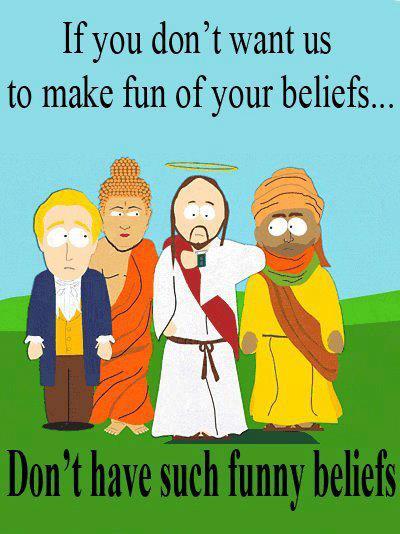
People in the story
So the LDS lesson manual mentions four kinds of people in the story:
a. 1 Nephi 8:21–23. (Those who start on the path but then become lost in the mist of darkness.)
Not very high achievers, are they? All they had to do was keep hold of that rod, and they couldn’t. Sheesh.
b. 1 Nephi 8:24–28. (Those who hold to the rod of iron until they reach the tree and partake of the fruit, but then become ashamed and fall away.)
Ah — they succumbed to peer pressure. Losers.
c. 1 Nephi 8:30. (Those who hold to the rod of iron until they reach the tree and partake of the fruit, and who then remain faithful.)
Those brave and stalwart individuals who stayed in the boat. And how did they manage it? By ignoring people with contrary opinions.
d. 1 Nephi 8:31–33. (Those who never start on the path but instead go directly toward the great and spacious building.)
So one group ends up believing, and three don’t. There’s something I want to point out about the three groups: They’re all people who succumbed to less-than-worthy motivators, whether apathy, or insufficient stamina, or social pressure. No one ever lets go for a worthwhile reason, like the fact that the iron rod isn’t really going anywhere, or the fruit of the Tree of Life is kind of meh. And what with all the scriptural editing, uncredited essays, and apologetic double-talk in the church today, the iron rod isn’t as firm as it used to be. It’s more like a steel slinky.
Which leads me to a conclusion. All the church knows how to do is devalue the life choices of people who don’t stay in the church. You can blame them or feel pity for them, but in this story, there’s no way to see their choices as valid.
How is a Mormon supposed to respect non-members or ex-members? How is a believer supposed to regard an ex-Mormon partner? How does this story help to build relationships? Or really, to do anything besides keep Mormons in their seats every Sunday?
There is one good thing in the manual, however.
Encourage class members to strengthen each other and to never mock or belittle others.
Hey, that’s fair. If we’re doing that, we need to knock it off. Ideas are fair game, but people deserve respect. That also goes for people who stay Mormon. We may not think it’s a good decision, but we don’t always know their motivations or their situation. Who knows — maybe something could have been different for me, and then I’d still be there.
A better story
Here’s my try at writing a better analogy. It’s more reflective of reality as I see it. From the Book of Daniel (Midgley), chapter 1.
- And it came to pass that I saw a world, and this world had treasures wondrous to behold.
- There was knowledge to gain, and work to be done.
- There were books to read and stories to tell.
- There was treasure.
- What’s that game where you slash around in the grass and find gems? Is it Zelda?
- It was like Zelda.
- There was food and people and music and art and love.
- There were a lot of dangerous animals and there was disease.
- For a lot of people, things sucked pretty much all the time.
- But fixing that was part of the work to be done.
- Oh, yeah, and there was coffee, too.
- And it came to pass that into this land there came a group, all huddled together, with a huge muslin sheet over them.
- The Sheet kept them together in a group, like a great amoeba or something.
- The Sheet blocked out the light, and kept them from seeing the things in their world as well as they might.
- For those closest to the centre, it obstructed their view entirely.
- God, were they sensitive about the unkind comments people made about the Sheet; but in fairness, they looked frigging ridiculous under that thing.
- And it looked hot and uncomfortable.
- But they did not mind being under the Sheet because they felt it was safer then being outside.
- Their leaders told them what life was like outside, and their descriptions of the dangers was enough to keep them under the Sheet.
- Being under the Sheet made them feel special, like a community.
- And some said that they could not imagine life without the Sheet.
- And some were not sure about the this whole Sheet thing, but that the Sheet was a part of their identity, and they’d been under the Sheet for this long, so.
- And it came to pass that some of them would venture out in pairs to convince others to join them under the enormous Sheet, and some would join them.
- And it came to pass that in the course of time, I saw more and more people venture out from underneath the Sheet.
- They had seen that the world outside the Sheet had more treasures than they’d been able to imagine, and that life under that Sheet involved a lot of unnecessary crap.
- Especially not having coffee.
- But when they returned to tell others about life without the Sheet, they found themselves ignored by their erstwhile fellow Sheet-mates.
- And it came to pass that Sheet-mates was not intended as some kind of sexual euphemism.
- And sometimes they were cut off from their families and partners (who really had been Sheet-mates) and these were the saddest of all.
- And it came to pass that some of the People of the Sheet were happy, and some were miserable.
- And some of the people outside the Sheet were happy.
- And some were miserable.
- A fact which the People of the Sheet harped on endlessly.
- But sometimes not being under a Sheet is like that.
- And the people outside the Sheet ended up, not in one place, but across the whole face of the land, since that was where the action is.
- And as the people discovered things about their world, they called unto each other, and shared their discoveries, and used their knowledge to discover more.
- And there were many ways to live, and many places to be, and all chose their way as best they could.
Additional lesson ideas
Is Jesus the Father?
The first edition of the Book of Mormon contained these verses:
1 Nephi 11:18 And he said unto me: Behold, the virgin whom thou seest is the mother of God, after the manner of the flesh.
…
11:21 And the angel said unto me: Behold the Lamb of God, yea, even the Eternal Father! Knowest thou the meaning of the tree which thy father saw?
…
11:32 And it came to pass that the angel spake unto me again, saying: Look! And I looked and beheld the Lamb of God, that he was taken by the people; yea, the everlasting God was judged of the world; and I saw and bear record.
In current editions, the text of these verses has been changed to read:
1 Nephi 11:18 And he said unto me: Behold, the virgin whom thou seest is the mother of the Son of God, after the manner of the flesh.
…
11:21 And the angel said unto me: Behold the Lamb of God, yea, even the Son of the Eternal Father! Knowest thou the meaning of the tree which thy father saw?
…
11:32 And it came to pass that the angel spake unto me again, saying: Look! And I looked and beheld the Lamb of God, that he was taken by the people; yea, the Son of the everlasting God was judged of the world; and I saw and bear record.
It’s a change that goes quite a bit beyond a simple textual edit, and shows that the Book of Mormon was Mormonism v1. Even so, sometimes Mormons double down on this, insisting that Jesus is the Father, if you redefine ‘father’. (Redefining words is the last refuge of a scoundrel.)
• Christ is sometimes called Father because of his role as Creator from the beginning
• Jesus Christ is also known as Father through the spiritual rebirth of mankind (see Born of God). As the foreordained Redeemer, he became the “author of eternal salvation unto all them that obey him”
• Furthermore, Jesus is called Father because of the authority God gave him to act for the Father.
So Jesus is the Father, but only when he’s acting as the Father. Unless he’s also the Creator or the Saviour, which is all the time. Totally not confusing.
Sometimes the Savior has spoken both as the Father (Elohim) and as the Son (Jesus) in the same revelation
Because the writer got confused.
At this point, I tap out. It’s like arguing about the Force v Midichlorians with Star Wars nerds. Mormons are basically making their Godhead indistinguishable from the Trinity, so I hope they have fun with that.






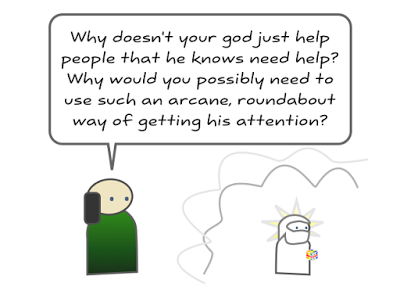
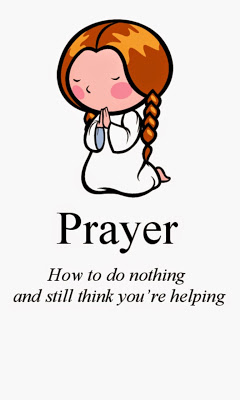


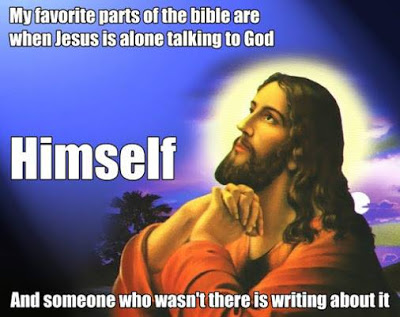

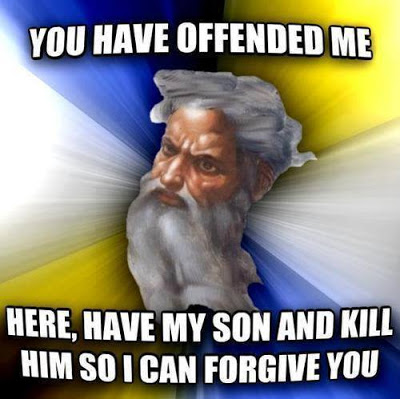
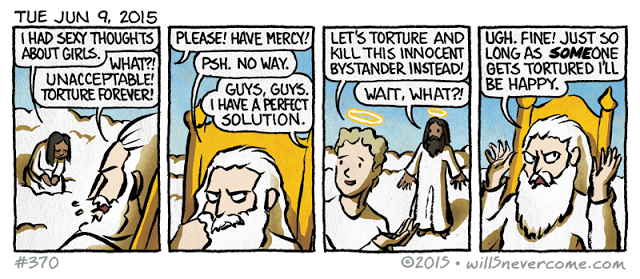
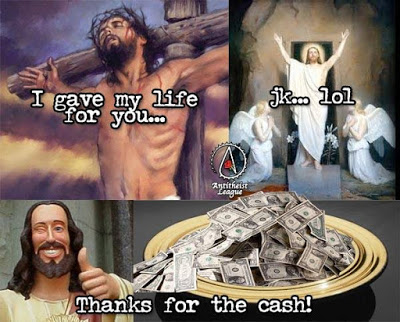




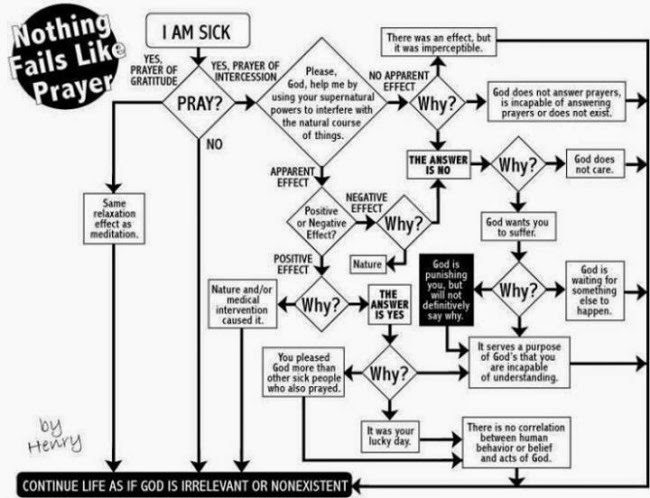

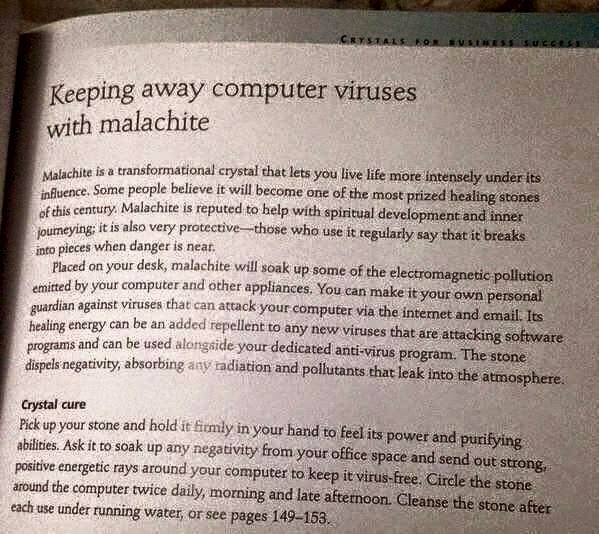



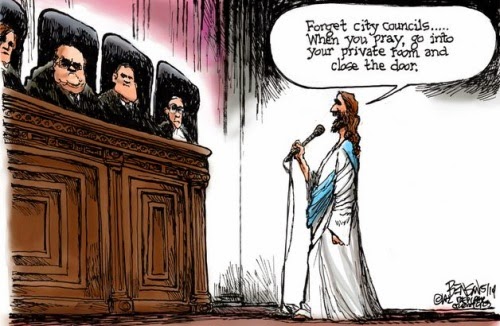


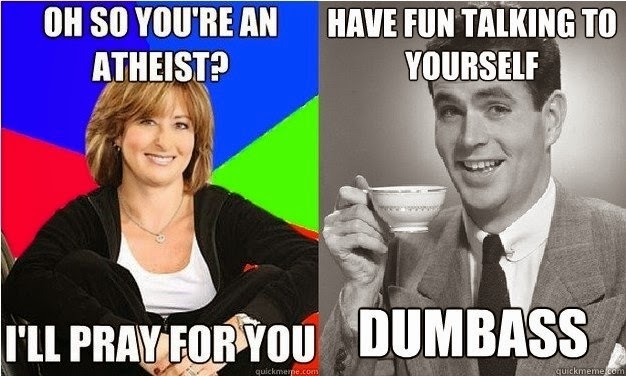

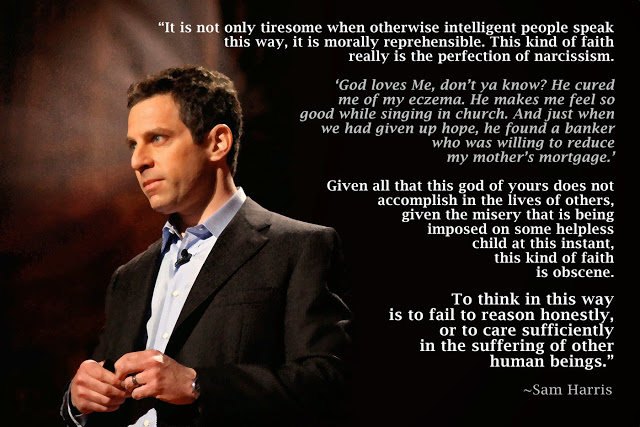
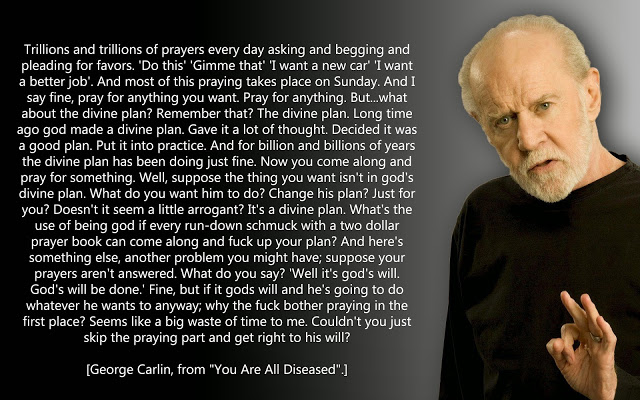

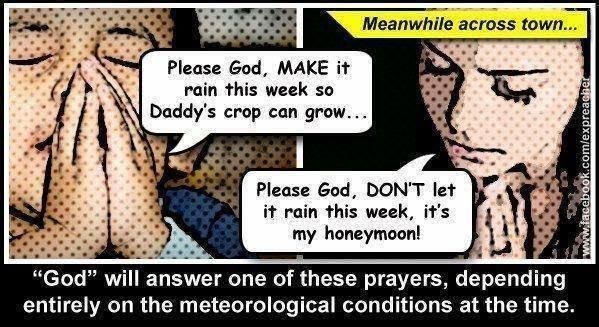

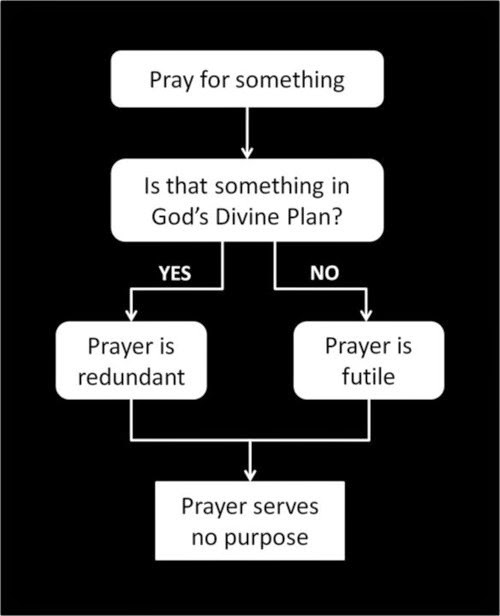


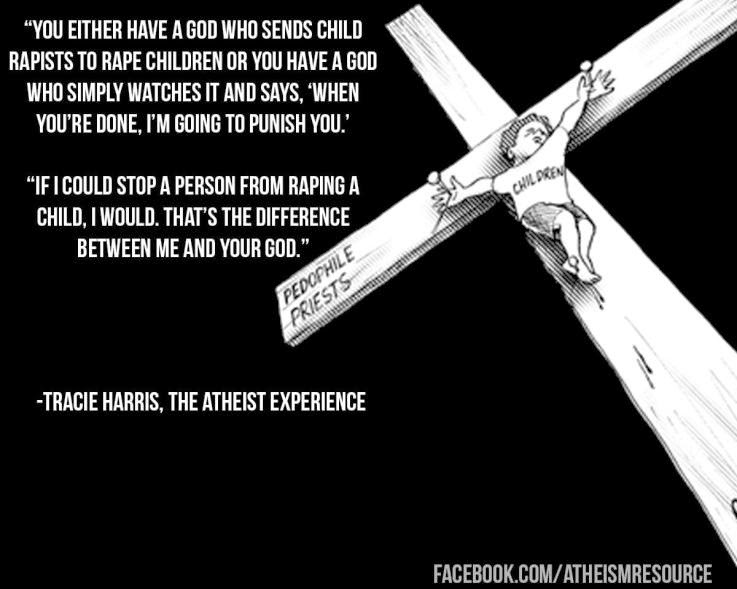
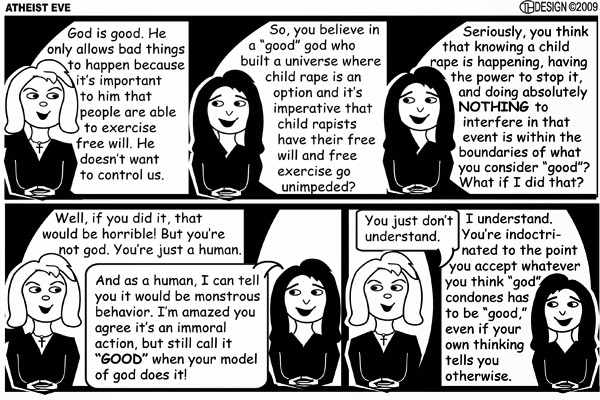
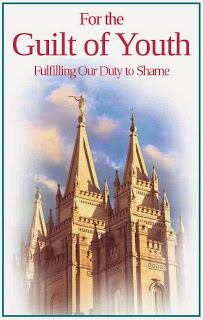
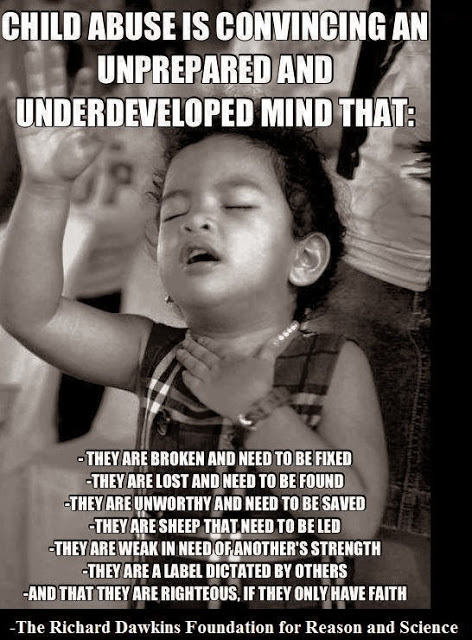
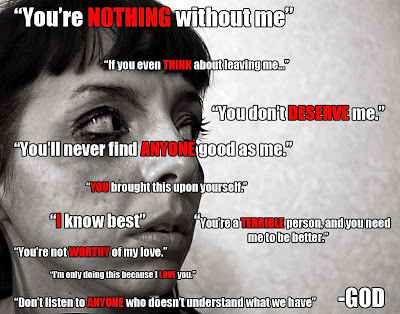
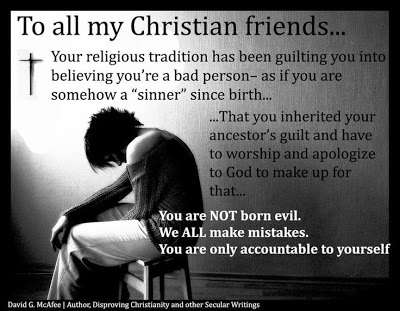

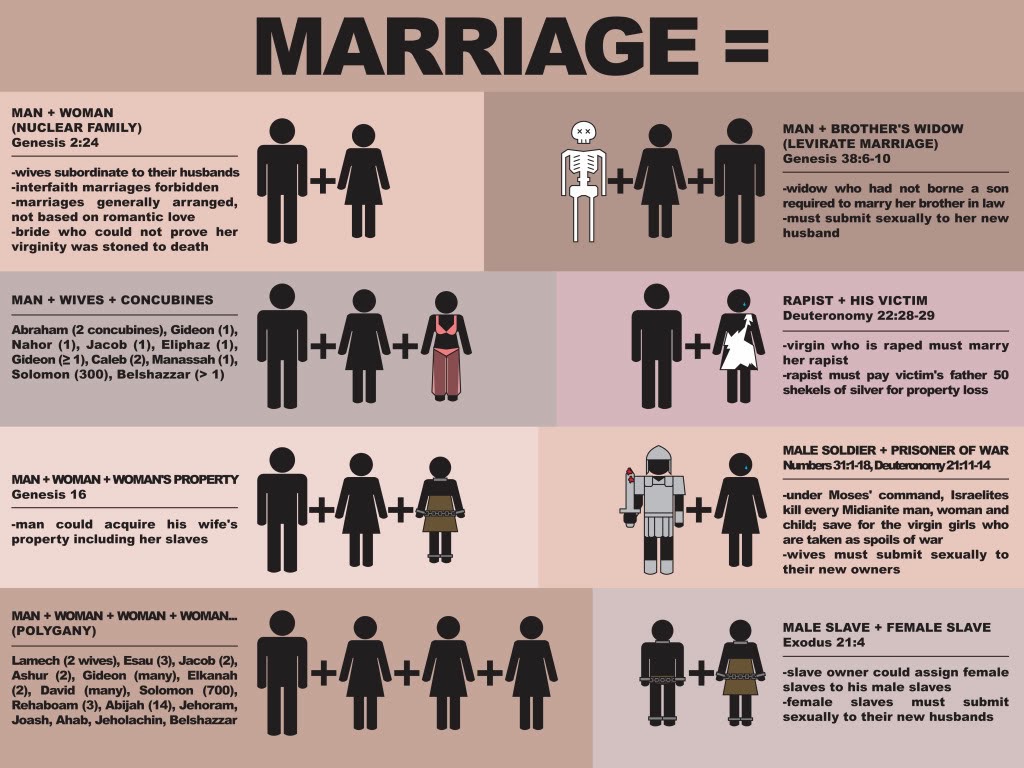
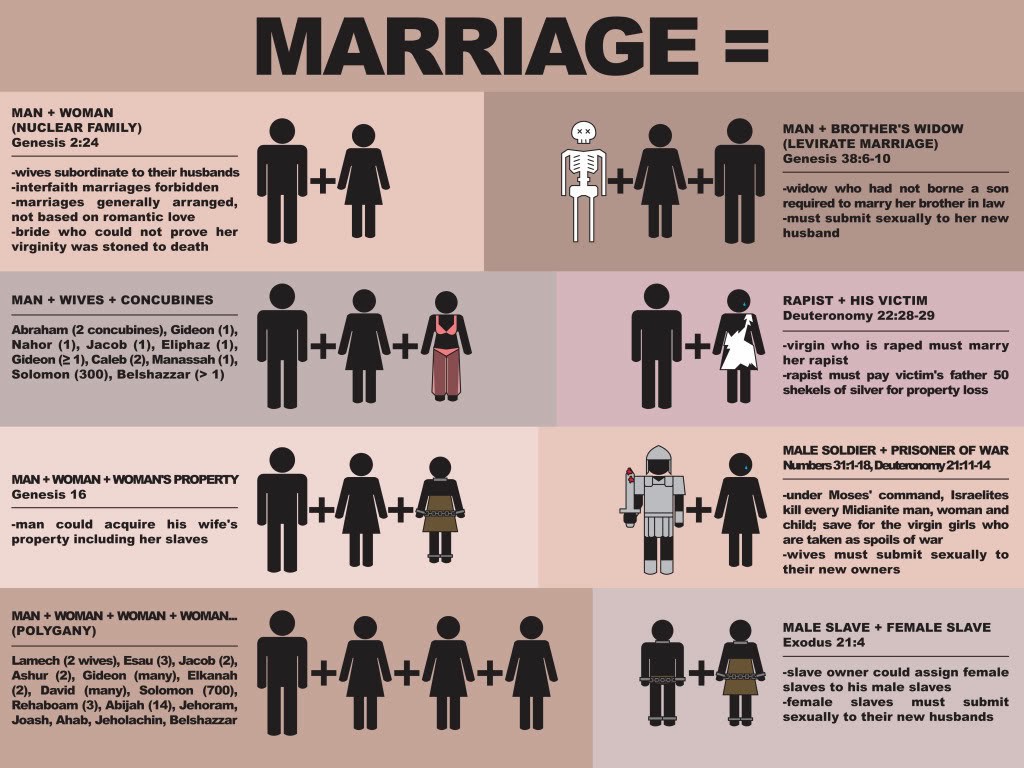
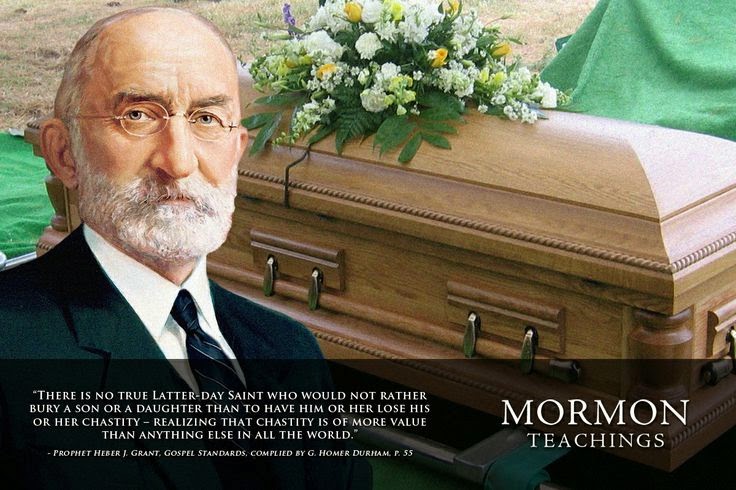
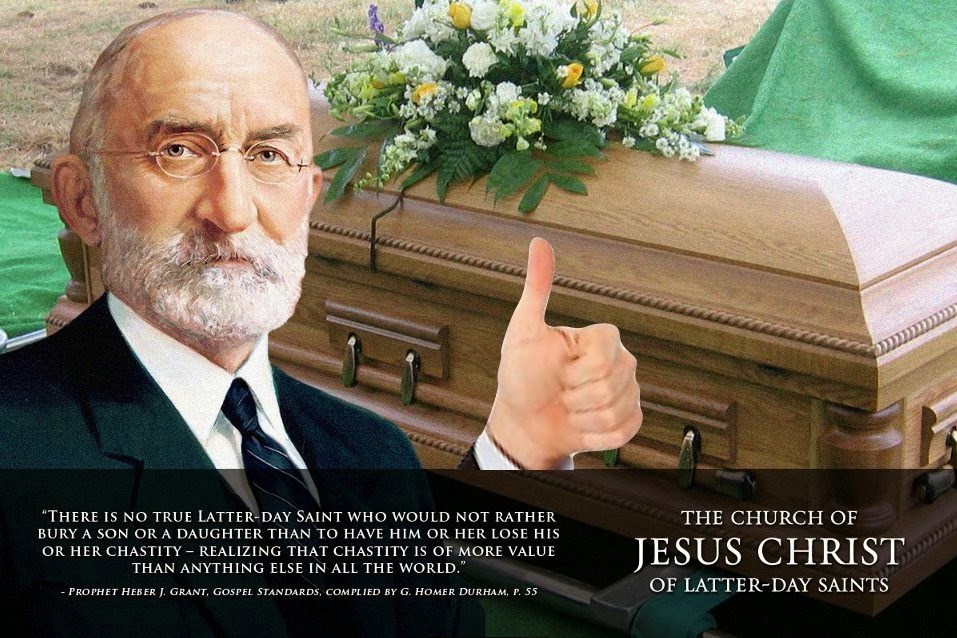




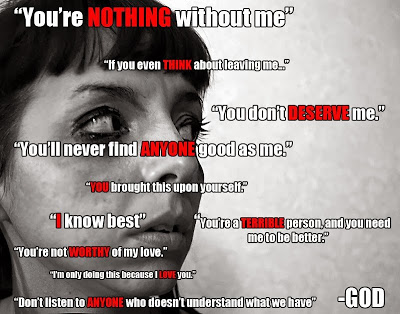
Recent Comments